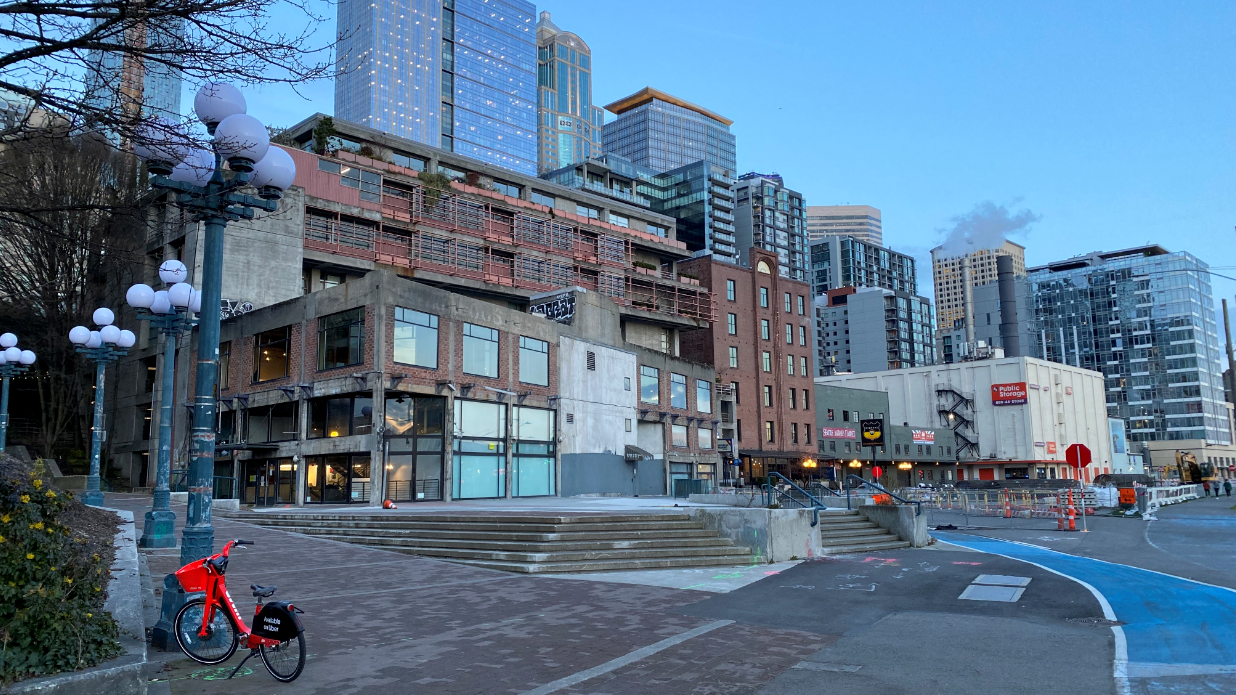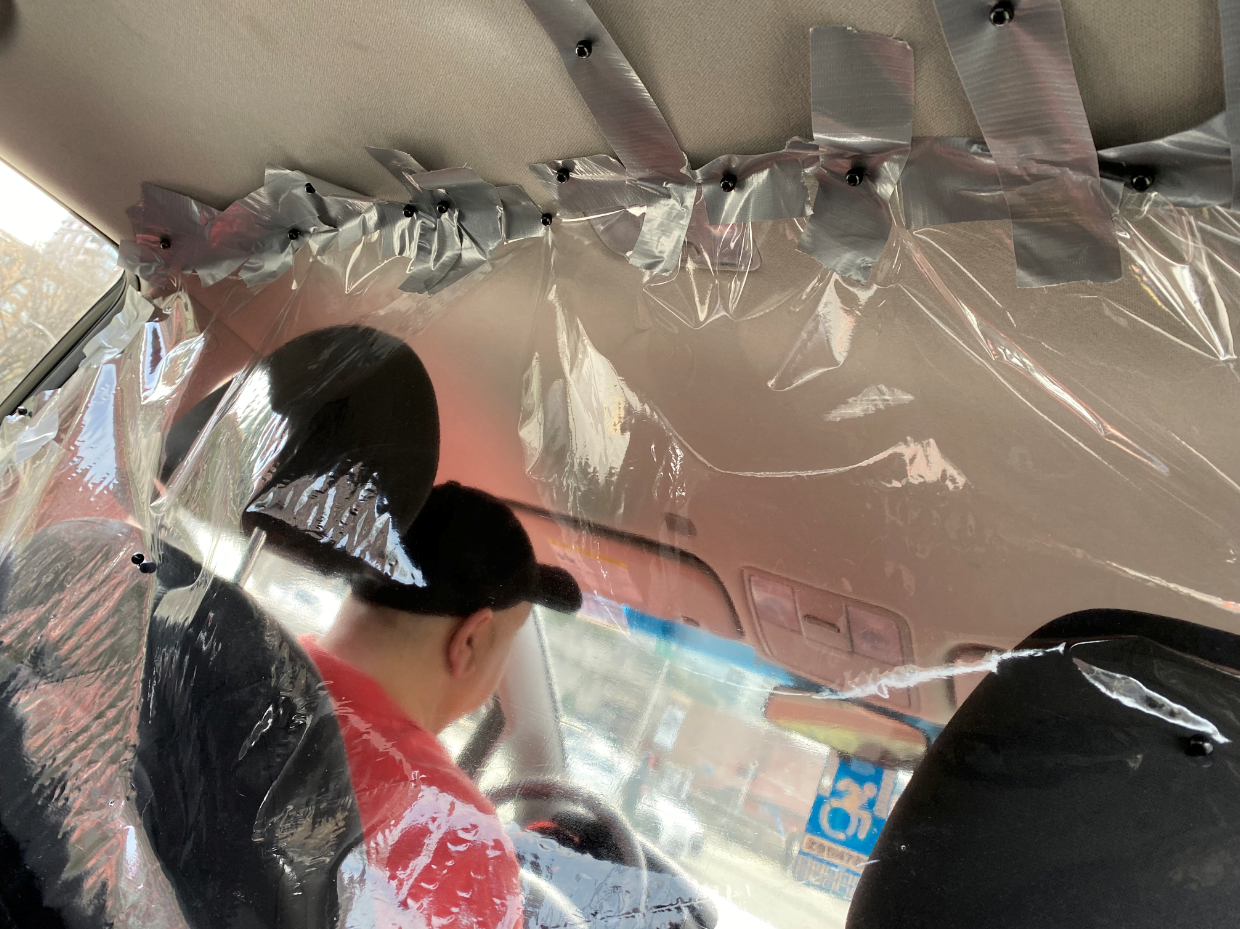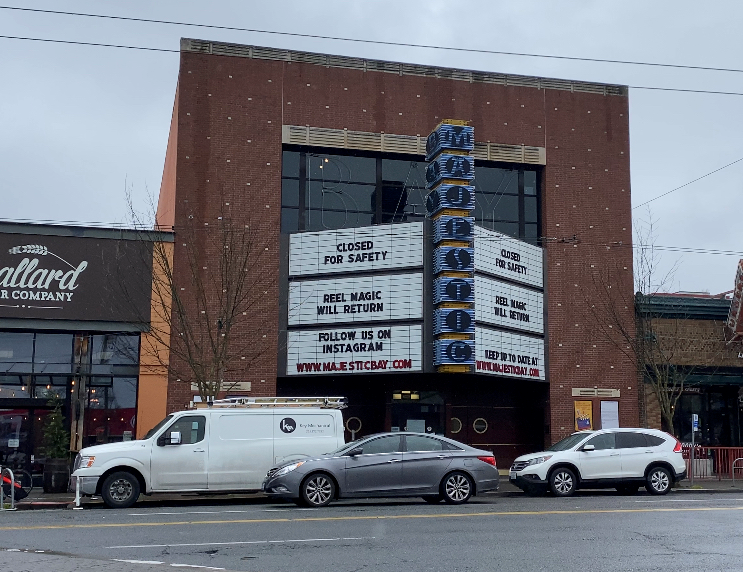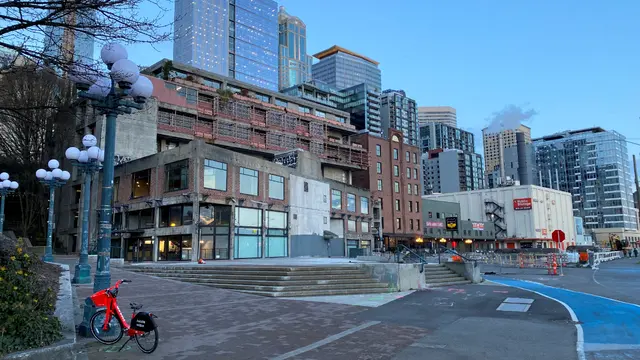
When I landed in Seattle for the second time this month, I knew things had gotten a lot worse since my first visit to the Washington State. My first assignment was earlier in March when a nursing home in Kirkland County became the U.S. epicenter of the COVID-19 outbreak, following the death of several patients from the same facility.
Since then, Washingtonians have been increasingly worried about a wider community spread, and they've been takingadditional precautions, but I assume not many of them anticipated what it would come down to in just a matter of two weeks.
Since the day Washington suffered its first casualty, life in this state has taken a significant turn within a matter of weeks. My Lyft driver from the airport was making a joke at first, by saying "look at this rush hour." Our car was cruising on a three-lane high way with hardly any cars around. Looking at the skyline of the Seattle Metropolitan area in the distance and noting the time on my watch, only a little past 6 p.m., it was indeed a little strange not seeing any traffic.
My driver, Kirill, said he usually makes between 150-200 dollars in three to four hours. But today "we've made only five bucks," he said. "Business is dead." He didn't know how to make ends meet by the end of this month, especially because he opted out of his part time job at the Amazon Warehouse, where he said he feared he has a higher risk of contracting the virus.
Kirill is only one in possibly thousands of people in a similar situation, and I believe at this point we still don't know the full extent of the economic impact this outbreak has caused. Next day, I met Erin, who'd already filed for employment days ago, as soon as her hours went down. She works at one of the well-known Tom Douglas chain restaurants around Seattle. She said, "It only took two weeks for this virus to cause a person who employs 800 people to go under." She said all those employees, along with her, would be left without health insurance, particularly disconcerting at a time like this.

Rideshare driver isolates himself from the rear passenger seats with an improvised plastic barrier, Seattle, U.S. Ediz Tiyansan/CGTN
Not too far from where she works, I saw the "Yellow Dot Cafe." On its door it said "We're only open until 2 pm." Inside, two workers were left to their own devices, with only one single customer sitting inside working on a laptop. This cafe is at the heart of South Lake Union – a hub for tech companies. Its managerJuan Soledad told me he pays roughly 10,000 dollars of rent for this prime location. He'd normally have a long line of people during lunch time, and dozens of orders from nearby companies. But with the new "work-from-home policy" at those companies, the orders are no longer coming in. Soledad said his profit for this week was only a few hundred. He's already laid off five of his employees, and he said the situation is simply not tenable, and that he might have to shut it down at some point.
On top of that, many people appear to be worried about consuming food outside. Most establishments have now taken new measures to ease those fears. Most are providing a steady supply of hand sanitizers and wet wipes for the costumers, and many are constantly disinfecting their spaces, wiping the tables and chairs after each time they're used. People coming in and out are often waiting for someone else to reach for the door handle. Hygiene is constantly in everybody's mind these days, and it's shaping their daily lives.
I also met Tony Poremba, who's in construction. His work hasn't really been affected he said, but his social life is. He jokingly said, "Try meeting anybody these days," and laughed. He said, it's a little bizarre to see the streets so empty even on the weekends. Seattleites impressed me as very resilient people. Most of them can still joke about the situation, regardless of how bad it looks and feels. I was pleasantly surprised by the fact that most people could maintain their calm and composure despite all the difficulties and uncertainties they're facing.

A popular movie theater in Seattle shuts down in line with the governor's orders to implement such closures across the state, Seattle, U.S. Ediz Tiyansan/CGTN
But then again, I believe we're not aware of the true economic impact of this pandemic on Seattle just yet. I tried to reach the local Chamber of Commerce, as well as the Office of Economic Development in Seattle, but they were both closed. On a national level, this outbreak has already caused a historic damage on the financial markets, but it should be noted that Seattle, the epicenter of this outbreak in the U.S., is one of the major economic hubs in the country. And its losses will take a toll on the larger U.S. economy as well.
And it seems, Seattle will continue to look like a ghost town, until the situation is under control.
(Cover image: Seattle's landscape during peak hours with no one in the streets following public closures due to the coronavirus outbreak. Ediz Tiyansan/CGTN)
 简体中文
简体中文




